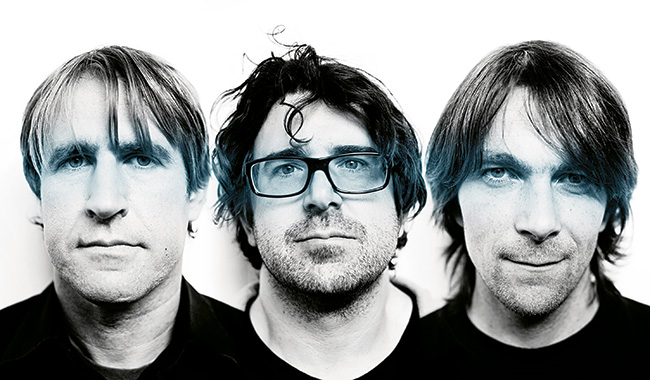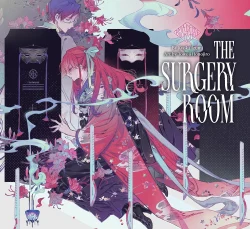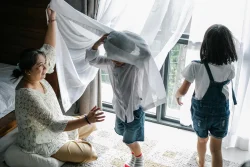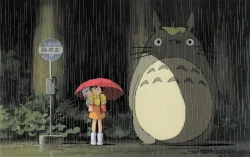
Originally published on metropolis.co.jp on November 2013

With long-serving US indie-rock outfit Sebadoh, what you see—and hear—is what you get.
“I always write from a very direct place,” offers frontman Lou Barlow from his home in Los Angeles, “which is good, but bad in some ways, because classic songwriting is about putting yourself in characters. With Sebadoh I write in a way that literally documents what’s going on in my life.”
Early Sebadoh songs famously took up Barlow’s expulsion by leader J. Mascis from Massachusetts band Dinosaur Jr. On their new album, Defend Yourself, the confessional atmosphere is even more personal and painful. “In the last year I left my wife,” Barlow says simply. “We’d been married for 17 years and together for 25 years. I left her during the recording of the record. So that informed a few of the songs.”
Where Barlow played the foil to Mascis in Dinosaur Jr., with Sebadoh, it’s all Barlow and co-leader Eric Gaffney. The pair formed the band in 1986, later filling out the lineup with drummer Jason Loewenstein.
Barlow and Gaffney’s songs have a less choked atmosphere than Mascis’s, but they remain quintessentially indie rock in flavor. Barely tuneful vocals are mumbled under grinding guitars—the ability to emote, rather than play a solo or pen a clever song, is the goal.
After releasing a few of lo-fi indie rock’s more influential albums (Weed Forestin’, Bakesale) in the late ’80s and ’90s, Sebadoh (a nonsense word coined by Barlow) went quiescent for a while. Barlow mended fences with Mascis for the 2005 Dinosaur Jr. reunion, and Gaffney had his solo project.
But Barlow and Gaffney went out on tour together again in 2007, even visiting Japan a few years later for a gig at O-West in Shibuya. The groundwork was set for their first recording in 14 years.
“We just finally found some time to do a new album,” Barlow explains. “We’ve had some really great tours, but it wasn’t realistic for the touring band to record for various reasons. Then Bob [current drummer Bob D’Amico] joined Sebadoh in 2010, and that went really well. So we made some definite plans. Jason and Bob flew out to LA and we got together in my practice space and recorded.”
The three tracked Defend Yourself without a producer, and the results are loose and lo-fi—yet surprisingly energetic for a bunch of middle-aged guys. “The last record we did in a studio and there was a lot of pressure and money involved,” Barlow relates. “What we learned was, if we were going to make another record and have a good time doing it, we wouldn’t get involved in any of that.”
At this stage in life, Barlow is unconcerned about staking out any new musical ground. “So much of what is considered modern music is actually regurgitated,” he believes. “I don’t think rock has progressed in any real way for a very long time—I don’t think that’s a bad thing. I’m just saying the most natural thing is to just write some songs and play them, and not make a conscious effort to evolve in any way or make anything timely.”
The name for the album came after the realization that three songs had the word “defend” in them. “A lot of our songwriting has been about understanding other people, but at some point you have to consider your own emotional wellbeing,” Barlow affirms. “Rather than always understand someone else, I had to go, ‘Well this is how I feel.’ There’s a double meaning: literally ‘defend yourself,’ but also to send the message to someone else that I’m not taking care of you any longer. It’s harsh, but it’s my life and I only have one of them.”
Showing archetypal indie rock lack of self-esteem, Barlow is sanguine that few people will actually relate the lyrics to events in his own life. “I’ve always felt my life doesn’t really matter that much and that no one is listening when I expose something,” he says. “I feel really anonymous when I do it. Even in my personal life, when I write for people, rarely do they see themselves in the songs. I take the view that the more honest I am in writing about myself, people will take that and apply it in their own lives.”
This goes for Barlow’s own experience of music. “When I hear a classic, great, incredibly personal song, I am not thinking literally about the musician who wrote it—I’m applying it to myself,” he says. “And I write my own songs with the naïve hope that other people are doing the same thing.”
Hostess Weekender, Yebisu Garden Hall, Nov 30-Dec 1 (Sebadoh play Nov 30).







